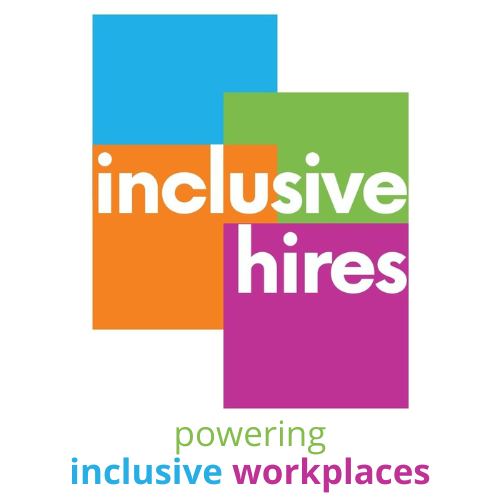
Despite the redundancy crisis appearing bleak, it is essential to remember that there are currently millions of job vacancies. But competition for these roles is now at an all-time high, with the applicant to job ratio rising by 84% since the pandemic.
If you are currently facing redundancy, your plan should focus on seeing where you fit into the post-pandemic job market – where the opportunities are, and how you can make yourself the most attractive candidate to employers for the role you want.
This guide is to help you to start making plans today to help give you the best career opportunities in our post-pandemic world.
The Realities of Still Being on Furlough
Chancellor Rishi Sunak said in the House of Commons: “The more time on furlough, skills will fade, and people will find it harder to get new employment.”
Despite the government promising employers £1000 for every employee kept on (until at least January 2021) many fear that this is not enough.
By July 2020, there were already 650,000 fewer people in employment than they were in March, with this number rising further as the initial scheme came to an end.
The government produced official guidelines aiming to help those who were initially put on furlough but are now redundant due to their employer either struggling to gain clients or becoming insolvent.
It is not known how many jobs will be lost, but what we do know from previous recessions is that now candidates must compete from a smaller pool of positions, those who ‘sell’ themselves best to employers will have a better chance at securing roles.
So, what can you do as a candidate to ensure you have the best possible chance of securing a new role after redundancy?
Let us start by looking at ‘the elephant in the room’; being made redundant and how you process what is happening to you as you move forward.
Being Made Redundant
If you are going through redundancy, it is essential to remember that you are not on your own, and there is help out there.
Remember that it is not you personally who is being made redundant – rather it is the role which has been made redundant.
Many people take being made redundant personally, but we want to remind you that it is not a personal decision, it is an unfortunate fact of the business’s current financial situation.
Mental Health charity Mind has created some helpful information and resources to help people currently dealing with redundancy due to the pandemic. They cover knowing your rights, how to cope with uncertainty and coping with the emotional upheaval that losing your role brings. You can find the information by clicking here.
Aside from the emotional stress caused by redundancy, it can also be a worrying time financially.
If the reality of redundancy has created financial problems for you, there is also specific guidance out there to help.
Martin Lewis, the Money Saving Expert, has created a detailed guide on how to manage your money through Covid-related redundancy, with advice on how to apply for monetary help, managing debts and your mortgage and your legal rights. Click here for the guide.
Processing the fact that you have been made redundant can take some time. Remember that redundancy is one of the most stressful life events a person can go through, and be kind to yourself and give yourself time to recover and regroup your thoughts.
In some cases, if your role is being made redundant, you might be offered a role swap within your organisation – let’s now look at how to approach this situation.

Role Swap
If you are being made redundant, at some point during the redundancy consultation, your employer may discuss the possibility of a role swap within the organisation.
These opportunities will be limited and will depend upon the size of your company and the number of redundancies that are being made.
Opting for a voluntary role swap if one is offered can benefit you in two ways.
- It will help you avoid redundancy altogether, although the new role might be in an area you had not previously considered.
- It could be the chance to try a new role you have previously been interested in, and the start of a new career path for you.
If you are faced with the decision of accepting a role swap in your current company, you should think carefully about what you will get out of the role, and ultimately, if you think this is the best decision for your career.
With your line manager, you should be able to discuss what you are going to get out of taking this new role, and they should be able to provide you with a development plan.
If, as I mentioned, the role swap will provide you with a position in a department you have been interested in exploring, then you can view this as fortuitous career development. You might be offered a job in the Sales department after previously being in administration – the scope for career development here is huge.
Think about how the role offered to you will benefit your personal and professional goals.
If you are sure the new role you are being offered is not suited to you, then declining and working on finding a different position with a new company is advised instead.
Once you are in the position where you know that looking for a new role in a new company needs to be your next move – what are the steps to take to put this plan into action?
Next, we look at how to upskill yourself for the current job market.
Upskilling
An incredibly proactive step you can take right now is to upskill yourself in an ability you know you need for the future of your career.
This is advisable if you are certain that you know where you want to take your career and is a great strategy for anyone who wants to build on the skills they already have.
Later in the report, we will go through how to identify and use your most useful transferrable skills to give yourself the best chance of landing a new role.
But first, let’s look at how you can build your existing skillset.
For example, someone with experience in administration could take a digital media course so that they have a broader range of the now commonly needed office skills such as social media, digital communications, photoshop, or design.
Think about your most recent, or most longstanding role – what are your three main strengths? Write them down.
Now think about how you could build on these skills to make you a more attractive candidate. For example, in [Sector], you could join and become an active member in online communities on LinkedIn or Facebook (there are plenty out there). Being able to put on your CV that you are an admin or an active and prolific member of an [sector] online community will make you stand out from the other candidates.
As well as enhancing skills within your current area of expertise, there is always the opportunity to retrain a new area, and the pandemic might be the perfect opportunity for you to do this.
Training
With the job retention scheme officially coming to an end, for those returning to work after this, their furlough period could have lasted up to seven months. This is a significant amount of time which will have an impact on your role and your career whichever way you look at it.
Many furloughed employees have undertaken training while on furlough, as this was one of the stipulations legally allowed by the scheme.
For lucky employees, their employers might have been proactive with setting up training; others will have been left to their own devices.
If you have been on furlough for some months, you might have been able to undertake valuable training then, but if you haven’t – it’s not too late.
Recent research found that significant numbers of people in the U.K. are upskilling and reskilling to get ahead in the job market.
Online courses in teaching, programming and people management have surged in popularity.
The Open University provides a number of free courses, which you can view here.
Future Learn also has a variety of free and paid courses, which you can browse here.
If you are facing redundancy from a large employer you may be eligible for help from the government’s Rapid Response Service – this is an excellent way to take advantage of a range of free training courses and can be accessed through the Jobcentre.
While the Jobcentre can provide help and advice, their services are limited, and they will not be able to provide a tailored job search for you based on your skills and abilities – this is why it is always best to work with a recruiter too. There is more information on the benefits of working with a specific [Sector] recruiter at the end of this guide.
Retraining might not be what you had in mind for 2020, but it’s time to view the positives which can come from a change. You could use this time to explore getting into a sub-sector or to a learn a craft you have always been interested in.
Making such a significant change is not something to be considered lightly. As recruiters, we are on hand to discuss your future career options with you to help get the best results from what is currently a very challenging time. Get in touch with us to speak to one of our team.

Where Are the Job Opportunities?
Navigating the job market right now might feel like an uphill struggle.
If you are looking in the same narrow range of job types that you have always done, it might be time to broaden your horizons.
John Adams was the leader of the American Revolution and was the U.S. president in 1797, and I love his famous quote of the time; which is just as relevant today:
“With challenge always comes opportunity.”
While Covid-19 has cut jobs in some sectors, others are growing.
Growth is happening in public services, I.T. and tech (especially online sales and transactions), project management, as well as industries which have switched to ‘online only’ of late such as digital, communications and media, as well as online tutoring and virtual customer services.
But if these sectors which are currently growing feel a million miles away from your current skill set or knowledge, this does not mean that you won’t have a chance of securing a new role in a new industry.
A recent study found by Robert Half found that 42% of people who apply for a new job don’t have the skills listed on the job description. What’s even more encouraging is that 84% of companies are willing to train up applicants who lack the required skills if they have other ‘must-have’ attributes. The study was conducted in the U.S., but this trend is the same in the U.K. too.
A positive ‘can-do’ attitude goes a long way when applying for a new role.
Updating Your CV
As recruiters, we always advise any applicant to tailor their CV and cover letter to the role you are applying for (more on cover letters in the next section).
And this is still true, although some additional changes are advised in our post-pandemic world.
Typically, CVs will have the employment history at the top, with skills and other experience listed underneath.
To increase your chance of landing an interview, instead, we suggest that you detail your skills – hard, soft and transferrable (more on these in the next section) at the top of your CV.
Including your skills at the top of your CV will pique the hiring manager’s interest instead of them dismissing your CV for not having relevant industry experience.
Additionally, now is the time to include skills and experience from previous jobs that you might have thought were irrelevant. Past experience, achievements, volunteer work – now is the time to bulk up your CV to make you stand out from the crowd.
At this time, it would also be a good idea to contact previous colleagues and managers to get them to give you online recommendations on your LinkedIn page.
After a hiring manager looks at your CV, usually the next thing they do is to research you online. Make sure they’re impressed with what they find there, too.
The key thing to remember with your CV is that even though you want it to contain the maximum amount of the most relevant information, you also need to keep it succinct.
Keep it ideally to two pages, but three is acceptable if you have lots of relevant experience.
Remember to tailor your CV heavily to each specific job you are applying to – make your CV mirror the job application as much as you possibly can.
Next, we talk you through making the most of every job application.

Your Post-Pandemic Job Application
Right now, you need to make sure that you are making the most of every available opportunity to make yourself stand-out as the ‘must-have’ candidate.
Some job seekers are under the impression that sending a cover letter with their applications is somehow an old-fashioned concept – this is not the case.
Most online applications will give you the chance to attach a cover letter along with your CV – you should always take advantage of this function.
A cover letter explaining your situation and a smart link between your previous experience and what the employer is looking for will go a long way. A shocking 74% of job applicants in 2019 didn’t use a cover letter.
So say you’ve spotted a job you want to apply for, but your CV looks very different from the required skills that are listed on the job description, or you feel you lack knowledge in this Sector – what can you do?
Call upon the soft and transferable skills mentioned earlier and find a way of relating as many of the required skills or attributes that the job application lists to your previous experience.
Aim to relate your own experiences to the job listing as much as you can, but remember –a concise application and a positive, friendly ‘can-do’ attitude go a long way on a job application.
Temporary Employment
If your job search is still proving unfruitful, the option of temporary employment is one which can be hugely beneficial to you, but one area which candidates often overlook.
In the past, ‘temp’ work had a stigma attached to it as lower-skilled or less prestigious than a permanent role, but this is not the case anymore.
Pre-Covid, with the rise of the gig economy, increasing numbers of skilled employees were looking for temporary contracts, to give them that elusive work-life balance we all strive for.
But when you need a role fast, this type of work can also be a saviour.
The Recruitment and Employment Confederation (REC) revealed that the numbers of people signing up for temporary employment in July was at the highest point ever since records started in 1997.
Taking a temporary role should not be viewed as a failure; it is an excellent way to reboot your career in what is a tough time.
Many businesses are in preservation mode, which is why roles are seemingly harder to find. But this is a safety tactic to preserve finances. As we have seen from previous periods of economic downturn, recruitment will start up again once the economy finds a settling point.
Taking a temporary role with a company is a great way to get on their radar for future permanent openings, which will happen over the coming months. Once you have your ‘foot in the door’, you can prove your employability and have a much better chance of being taken on for a full-time role in future.
Finally, if you haven’t considered working with a recruiter to find your next role – here’s how you can benefit.
Working With a Recruiter to Find Your Next Role
Working with a recruiter is the most effective way to boost your career prospects if you have been affected by redundancy.
As a recruitment agency, we are helping candidates like you find their way through these difficult times.
We can offer the following forms of support to diverse candidates looking for work right now.
-Career advice
-CV help
-Tailored job search
-Negotiating interviews and contracts
All for free.
Many candidates don’t realise the enormous benefits of working with a recruiter, and now really is the best time to work with one.
To view our current vacancies, check out the Inclusive Hires jobs board or head over to the Inclusive Recruiting website www.inclusiverecruiting.co.uk. Alternatively call us on 0203 397 8333 to speak to one of our team and find out how we can help find your next role.

